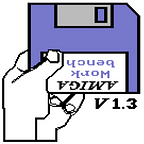Deliverables
Deliverables are the product of certain kinds of work.
When I work for certain companies I produce Deliverables. A Deck [future post] is a deliverable, a Memo [future post] is a deliverable, an “Architecture,” [future post] is also a deliverable. What is the deliverable? Where are we with the deliverables? We need to ensure the quality of our deliverables. And “Deliverable” is a hilarious word, because it implies that the only quality of work that truly matters is that it is delivered—like bad take-out food or weed. A deliverable is anything as long as it’s there. Other Deliverables I have created include brand strategies, marketing copy, taxonomies, and talking points for speeches.
Sometimes the deliverables are ignored.
Sometimes they change the path of history. One day you are putting numbers into spreadsheet cells, and the next those numbers feed into budgets, and the budgets turn into requests to Human Resources, which turn into postings on Stack Overflow and requests to outsourcing placement firms in Estonia or Mumbai, and these turn into human beings doing things, sometimes in Offices, or at home, or in home offices. Just one number in a cell in Excel, plus human beings with checkbooks, and suddenly you’ve created an absence that must be filled. Houses are sold and bought. Kids have to move from their schools and attend new schools. This is why Google Docs will never win over Microsoft Office, because it offers the same features but not the same kind of power. It creates different kinds of absences.
When I speak to groups using a deck I feel safer. It’s not that I won’t know what to say without my deck. I am concerned that I’ll just keep going, that some great unpleasant bundle of gristly self will spill out before a few hundred people. The deck is like a cognitive bustle that stops mental leakage. Another reason we use slides when we give talks is so that people in the audience will have something to focus upon to take their mind off of the fact that you are speaking, and not them. That is why we introduce speakers and list their accomplishments before they speak. This is why we project slides. So that the audience is less likely to rise up and kill the speaker for his or her arrogance.
When I suggested this to someone I had just met at a bar in San Francisco, a bar with a name I forget that had once been a boat, the woman said something like: “Isn’t it also that people want to hear what you have to say, that they want to take your ideas back with them? That you give them a different way of looking at the world?” This reminded me that occasionally my cynicism works against me.
When I go to California I am reminded that there is still some room in the world. People on the West Coast like to create absences and see who fills them. In New York, someone always wants to be standing where you are standing. Or to put it another way, the Bay makes the boxes and New York fills them in. Which, come to think of it, is what’s happening right now as I write this post.
Sometimes I go to conferences and listen to people talk about Teens [future post] and Mobile [future post]. Or they talk about empowering people to program. And into my head comes a little nagging voice, a voice that is incompatible with the ethos of the conference. That voice says: Microsoft Office [future post] had around $20 billion in revenue last year, by far the most profitable part of Microsoft, and has a half-billion users.
Sometimes, if I walk up and down the streets of Manhattan on a weekday morning and listen very carefully to the conversations coming down the elevator shafts, I will hear that people are making decisions about billions of dollars, decisions that will affect thousands of lives. To make those decisions they use: Microsoft Word, Microsoft PowerPoint, and Microsoft Excel. Much of my own life has been organized by people using those tools, and much of yours. Learning the Python programming language will give you a certain kind of power over computers, but being amazing at PowerPoint is how you gain control over other people. For example, if you want insight into how the United States military decides whom to help and whom to punish and kill, you can search for PowerPoint files on Military websites on Google by entering “filetype:ppt OR filetype:pptx site:*.mil” into the search box.
When people mock corporate speech, the relentlessly positive ambiguity, the cheese-moving, they mock power. It is always a good thing to mock power. And it is also a good thing to understand what is being said. And there is also beauty in deliverables, in a good memo, a fine site. The forms have their own comfort and rhythms. Many great things, including “art” things, have started with memos. When editors apply to work at magazines they prepare a memo with ideas for what to assign. Excellent magazine pieces and books and television shows have been born from memos. I once suggested to an editor at a business publication—this person did not take this idea—that the magazine encourage its readers to email in troubled PowerPoint slides, then bring in world-class designers to redesign the slides. The templates that the designers created could then be downloaded and used by anyone. I liked this idea because it shifted power around in all sorts of directions and that makes for exciting “Content” [future post]. But alas.
